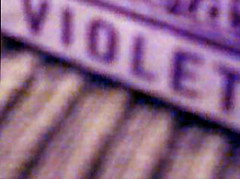The History Boys. The Ahmanson Theater. 11/20/07.
Ideologically, I should have hated The History Boys. It is the story of white working-class British boys struggling to get into Oxford and Cambridge (there is one black and one Muslim character, but they only have a couple of lines each). While it deals with issues of sexuality, it portrays its most overtly queer characters as repressed, tragic and/or unsuccessful. It also portrays a postmodern approach to history as ideologically suspect and opposed to an idealised "truth" and knowledge for its own sake.
It is a testament to playwright Alan Bennett's skill and insight, then, that I loved the play despite all of my theoretical objections. It is a beautiful, sensitive portrayal of characters wrestling with ideas of maturity, sexuality, and knowledge, questioning which knowledge is considered valuable and why. While I object to the portrayal of Irwin, the history teacher (played by Peter Paige), as advocating a deliberately provokative and intellectually suspect approch to history in the guise of postmodern skepticism of traditional histories, overall the characters and particularly the queer characters were interesting, complex, and actively engaged in a debate over what we value in education. I may not agree with Hector's (played by Dakin Matthews) methodologies as an English teacher, stressing memorization and appreciation without analysis and transcendent ideas of "truth" and "art," but I love the way the play established these ideas and displayed his truly entertaining pedagogy. It was all the more interesting against a the classroom backdrop of postmodern collage combining images from art history and pop culture. The actors playing the boys were all charming, especially Alex Brightman as Posner with his sweet voice and youthful innocence. I was also intrigued by Brett Ryback as Scripps, who often took a narrator role in the play and whose characterization as the religous one of the boys could have used more explanation/development.
The best moment by far intellecually was when Charlotte Cornwell as Mrs. Lintott, the more traditional history teacher and the only woman in the play, goes on a diatribe about history being 5000 years of men's mistakes and the women cleaning up after them who don't get mentioned. It's a great speech and a fun introduction to feminist historiography. Unfortunately, she doesn't get an opportunity to model this as pedagogy the way the men do. This speech gestures toward the way postmodern approaches to history can be done right, but Lintott remains outside the main discourse of the play nonetheless.
Overall, it was an entertaining and mildly intellectually engaging play. I enjoyed it very much, and it is rare that play manages to disarm me enough that my intellectual and ideological objections fly out the window so that I can sit back and enjoy the play uncritically as a solid, engaging, well-crafted piece of art.
My 2025 in Review
-
Hi Friends! Happy Holidays! Here is my 2025 rundown.
Another year of being a full time playwright! It's been about 2 and a half
years now. I feel li...
3 weeks ago

1 comments:
I can't wait for you to see Atlanta at the Geffen. I don't know where to begin. It's awful and you must see it immediately. You'll have so much fun blogging about it afterwards.
Post a Comment